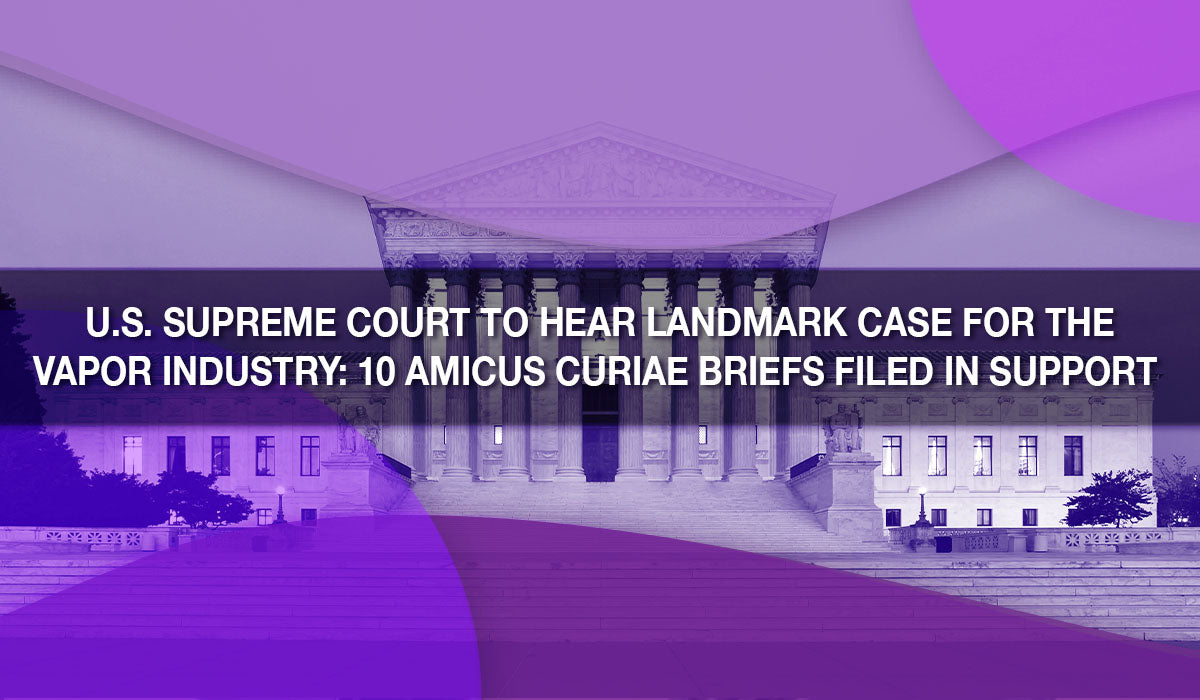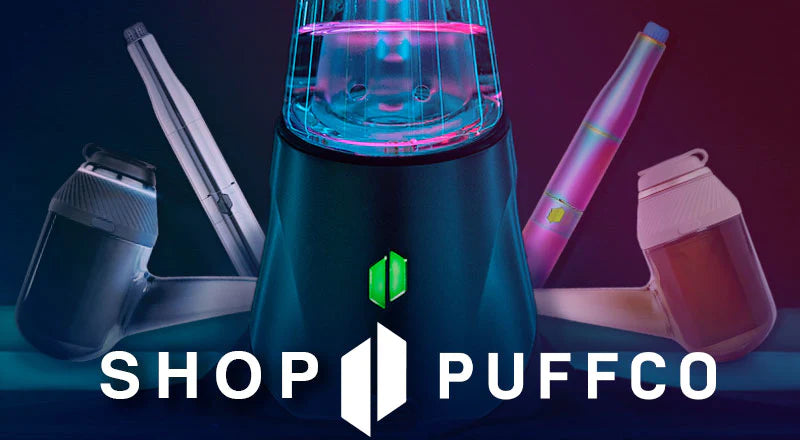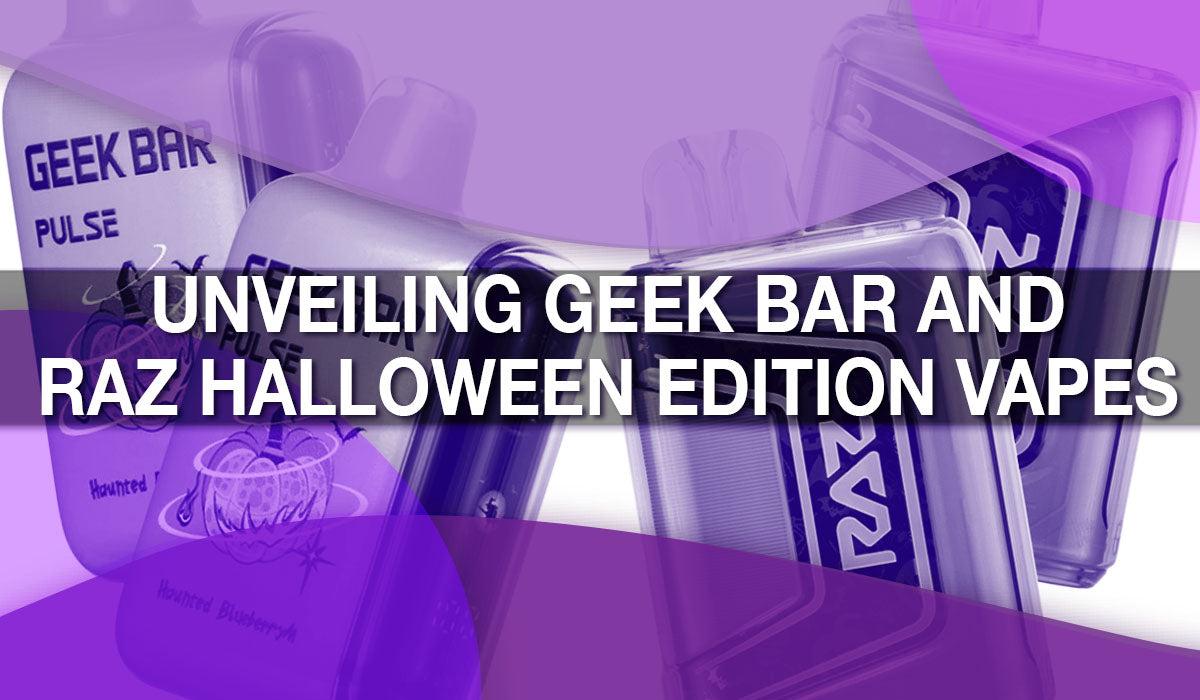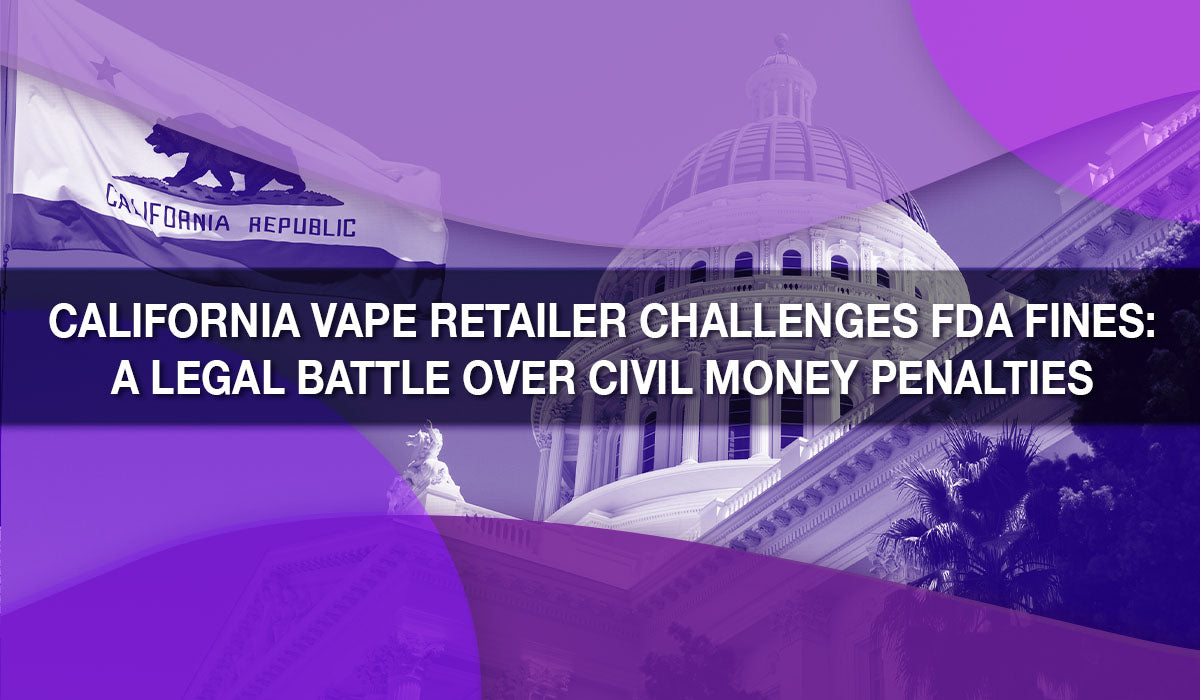
U.S. Supreme Court to Hear Landmark Case for the Vapor Industry: 10 Amicus Curiae Briefs Filed in Support
The U.S. Supreme Court has officially decided to hear a pivotal case concerning the FDA’s regulation of vaping products, a decision that could have profound consequences for the future of the vapor industry.
In an overwhelming show of support, 10 amicus curiae (friend of the court) briefs have been submitted on behalf of the vapor industry, advocating for the Court to consider the reduced harm potential of vaping as a tool for adult smokers.
Meanwhile, only three briefs have been filed in support of the FDA’s current regulatory approach, which has come under increasing scrutiny for its handling of vaping product approvals
Why This Case Matters
At the heart of the case is the FDA's issuance of marketing denial orders (MDOs) to numerous vaping companies, which has effectively barred many products from the market. The vapor industry argues that these actions are overly restrictive, inconsistent, and detrimental to harm reduction efforts aimed at helping adult smokers transition away from combustible cigarettes.
With the Supreme Court stepping in, this case is now poised to address the broader issue of how vaping should be regulated—balancing public health concerns with the need for alternatives to traditional tobacco products.
The Role of Amicus Curiae Briefs
The submission of 10 amicus curiae briefs signals widespread support for the vapor industry’s case. These briefs, filed by various stakeholders—including public health experts, consumer groups, trade associations, and legal scholars—bring a diversity of perspectives and data to the Court's attention.
Here are some key points raised in the briefs:
- Harm Reduction: Vaping has been shown to be a significantly less harmful alternative to smoking. The briefs underscore research, including from Public Health England, that vaping is 95% less harmful than smoking combustible tobacco. These stakeholders argue that the FDA's regulations could drive adult smokers back to traditional cigarettes, which carry far greater health risks.
- Regulatory Inconsistency: The vapor industry and supporting groups assert that the FDA has applied its regulatory authority inconsistently, leading to arbitrary marketing denials that do not consider the potential benefits of vaping for public health.
- Economic Impact: The vaping industry is a multi-billion-dollar sector that provides employment and innovations in harm reduction. The briefs argue that heavy-handed regulation could wipe out much of this progress, harming small businesses in particular.
- Public Health Benefits: Several briefs present evidence that switching from smoking to vaping can improve health outcomes for millions of adult smokers. They urge the Court to consider this when evaluating the FDA’s decisions.
Opposition: Only 3 Briefs in Support of the FDA
In stark contrast to the 10 briefs filed in support of the vapor industry, only three briefs have been submitted to the Supreme Court in favor of the FDA’s current regulatory approach. These documents primarily focus on concerns about youth vaping and public health risks, despite data showing a significant decline in youth usage rates.
Amicus Curiae Briefs Blast FDA’s Handling of Vaping Regulations
Below are links to ten amicus curiae briefs criticizing the failed PMTA scheme and the FDA’s fatally flawed regulatory framework for vaping products.
What Happens Next?
Now that the Supreme Court has agreed to hear the case, oral arguments will be scheduled, and the justices will have the opportunity to weigh the arguments from both sides. The decision could have far-reaching implications for the vaping industry, public health policy, and future FDA regulatory actions.
The presence of 10 amicus curiae briefs advocating for the vapor industry underscores the growing awareness that vaping plays a critical role in harm reduction for smokers. As the Supreme Court prepares to take on this landmark case, millions of adult smokers, industry stakeholders, and public health advocates are eagerly awaiting the outcome.
Final Thoughts
This case presents a crucial turning point for vaping regulations in the United States. The Supreme Court’s decision could reshape the landscape for both the vapor industry and public health efforts to reduce smoking-related harm. With a significant amount of legal and scientific expertise weighing in through amicus curiae briefs, the justices will have ample material to consider as they deliberate on the future of vaping in the U.S.
For now, the vapor industry remains hopeful that the Court will recognize the benefits of harm reduction and provide a more balanced regulatory framework moving forward.









Leave a comment
This site is protected by hCaptcha and the hCaptcha Privacy Policy and Terms of Service apply.